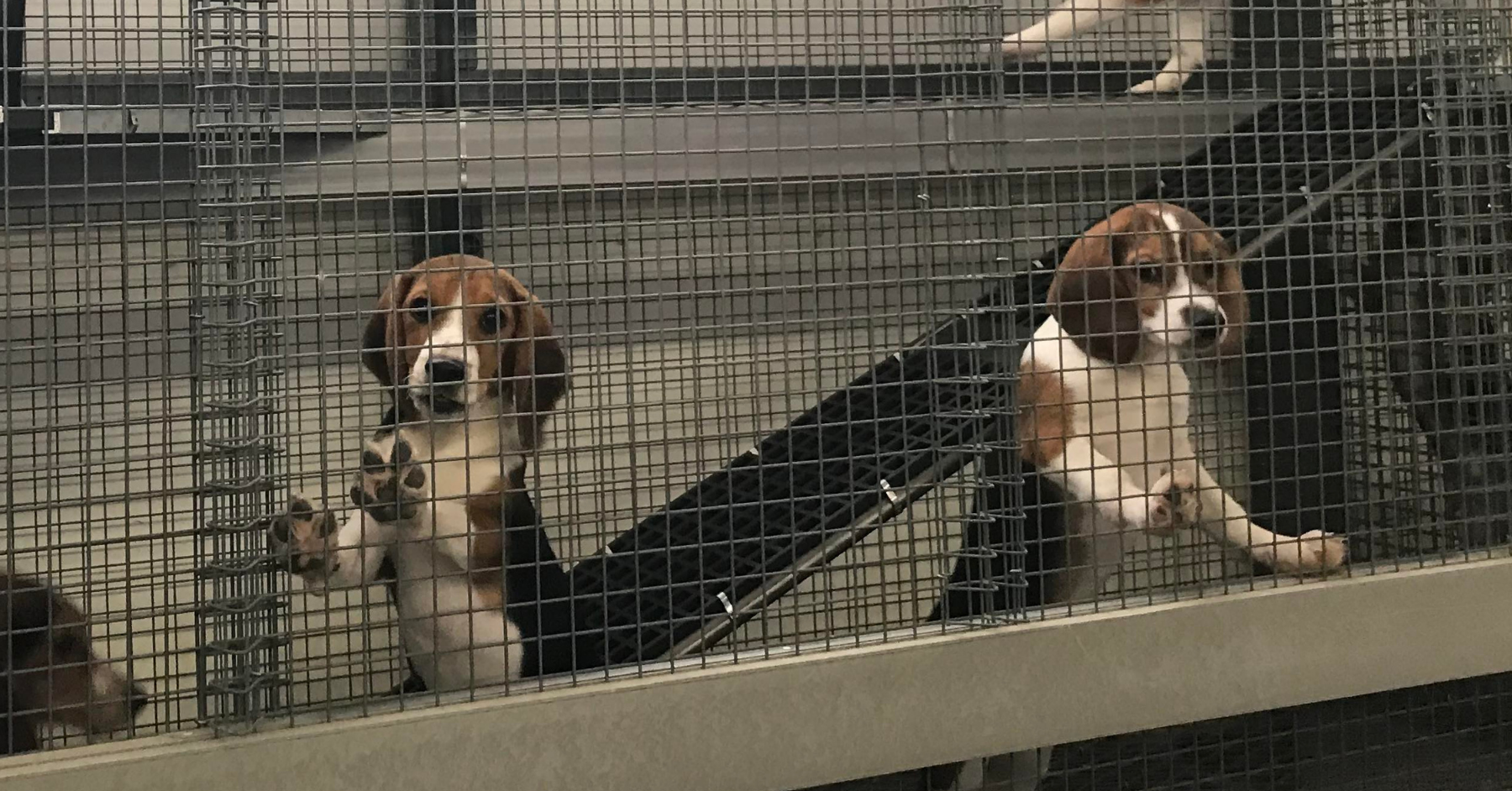
Rare Photos Inside a Mega-Breeder for Animal Research
After connecting with a former employee of upstate New York’s Marshall BioResources, our friends at U.K.-based animal protection group Camp Beagle graciously shared the whistleblower’s photos and insights with us, to share with you. If you’re reading this in the U.K, please get involved and help support Camp Beagle’s tireless work against the exploitation of dogs and all other animals who are used in research and testing.

Tucked along a grass-lined street in the quiet town of North Rose, NY — population 5881https://datacommons.org/place/geoId/3653462?utm_medium=explore&mprop=count&popt=Person&hl=en — lies Marshall BioResources.
It’s the notorious (and notoriously secretive) mega-breeding operation that doesn’t want you to see any of the 66,421 dogs, ferrets, pigs, and cats the facility keeps in its enormous, bleak buildings.

But, thanks to a brave whistleblower, you’re now able to get a rare glimpse of the faces of some of the beagles and ferrets held captive inside. You also get to see the cruel conditions in which thousands of innocents are forced to exist, until they are shipped off to meet their even crueler fates — usually in research laboratories, where each animal will become the subject of an unthinkable experiment (or multiple experiments).


The whistleblower, who worked at Marshall BioResources when they were just a teenager, reported having to detach themselves from feelings and emotions while working.
They said that the dogs there weren’t interested in playing, or perhaps even able to play — toys and social interactions did not interest these dogs.

They reported that Marshall’s puppies would be tattooed for identification purposes when they were just a few weeks old.
They said that it was not unusual for puppies to die overnight, but because they worked afternoon shifts, they had come across “only” one deceased puppy in a cage. But they indicated that there were two times they found lots of blood in the cages. In fact, they reported that blood was a common sight: the metal mesh flooring of the cages would routinely cause foot injuries to the animals trapped on top of it.


It was the whistleblower’s duty to remove the dogs’ and ferrets’ excrement from their wire enclosures. They said that they would scoop the feces out, or else use a metal rod to poke built-up feces through the metal mesh rather than truly cleaning their cages. They said that the dogs’ and ferrets’ cages were properly cleaned only once every two weeks.



The whistleblower recalled how non-standard animals were considered deformed and unacceptable for sale, so they were killed and discarded. This included, they remembered, a puppy who was born with different colored eyes.
The whistleblower spoke of an on-site incinerator used for easy disposal of animals’ dead bodies.


Per March 2024 inspection reports compiled by the USDA Animal and Plant Health Inspection Service (APHIS), Marshall was documented holding 66,421 animals, including:
- 7,280 puppies
- 15,076 adult dogs
- 41,609 ferrets
- 1,886 pigs
- 127 kittens
- 443 adult cats

Every single one of these animals deserves their stories to be known and deserves liberation from the hell they’ve been bred to endure. If you agree, please take action now.
New York Residents: Take Action Here
All Other U.S. Residents: Take Action Here
Don’t let Marshall BioResources keep their secrets any longer! Share this page widely on Facebook and X (Twitter) now.